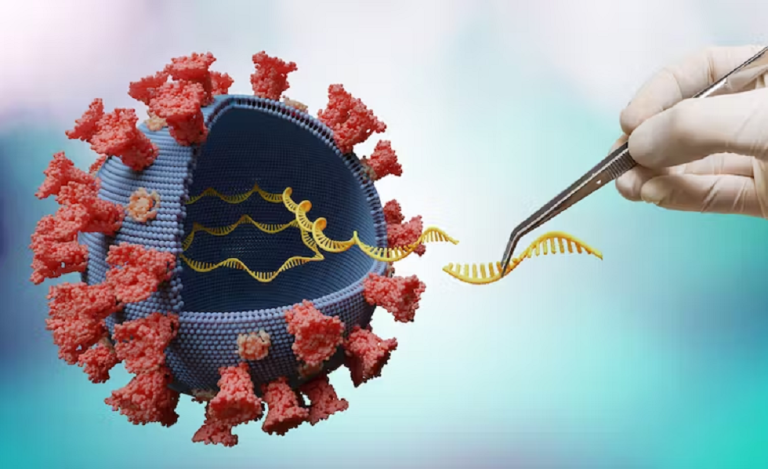The U.S. government has shut down a research program that searches for new animal viruses in Asia, Africa and Latin America that have the potential to infect humans and cause a pandemic. The $125 million dollar research program called Discovery and Exploration of Emerging Pathogens- Viral Zoonoses (DEEP VZN) focused on the study of novel pathogens in wildlife that had the potential for infecting humans.1
The U.S. Agency for International Development (USAID) began DEEP VZN in 2021 with plans to run it through 2026. Bases were set up in Peru, Senegal, Kenya, Thailand and Vietnam.2 The program looked for novel pathogens from three viral families: coronaviruses, filoviruses (Ebola) and paramyxoviruses (Nipah virus). The stated goal of the research was to “be better prepared to detect, prevent and respond to future biological threats.”3
The lead investigator for the program, Dr. Felix Lankester, explained the research was intended…
To make sure the world is better prepared for these infectious disease events, which are likely to happen more frequently as wild areas become increasingly fragmented, we need to be ready. “We will work to not only detect viruses but also build capacity in other countries, so the United States can collaborate with them in carrying out this important work.4
USAID worked with Washington State University to collect 480,000 samples from wildlife looking for novel viruses in order to identify which ones could cause a potential pandemic. The goal was to identify 12,000 previously unknown viruses. Washington State University was given $124.7 million dollars to support the program while the University of Washington, as a subgrantee, would provide experts to create “capacity in other countries to be able to find new viruses and characterize them.”5
Concerns Grew That Risky Research Could Cause Global Pandemics
Word got out that DEEP VZN was surreptitiously closed down at the end of July when USAID told Senate aides that the program was coming to a halt. DEEP VZN was doomed by concerns that the program aimed at stopping pandemics could actually start them. In late 2021, senior White House officials, Daniel Gastfriend, director of Biodefense and Pandemic Preparedness at the National Security Council (NSC), and Jason Matheny, deputy assistant for Technology and National Security to President Biden, relayed their fears about the potential consequences of the zoonotic virus research program to USAID administrator Samantha Power. Power’s response was to conduct a review of the program in order to see if the risks could be mitigated.6
Although USAID told the grantees to hold off on collecting zoonotic samples in March and November 2022, the agency continued to fund the program and secure additional laboratories and staff to handle additional samples while this review was being conducted.7 Power’s investigation seemingly led to the demise of DEEP VZN. According to Matheny, the controversial program that cost taxpayers more than $300 million was likely discontinued due to heightened media scrutiny and serious safety concerns.8
USAID was silent as to whether DEEP VZN was cut short due to the revelations that the SARS-CoV-2 virus may have originated from the Wuhan laboratory where virus gain of function research reportedly was taking place. While Washington State University global health school founder was disappointed with the move, other researchers applauded the decision. Justin Kinney, PhD, a quantitative biologist at Cold Spring Harbor Laboratory tweeted:
Wow! USAID has terminated DEEP VZN! This is a major win in the global fight against lab-generated pandemics.9
The U.S. State Department’s budget appropriation for fiscal year 2024 noted the end of the program as follows:
The Committee notes the decision by USAID to cease funding for the exploration of unknown pathogens.10
Study Finds U.S. Leads in Virus Gain-of-Function and Loss-of-Function Research
DEEP VZN is only one of many risky virus altering scientific research projects being funded or conducted by the U.S. A recent global study found that the U.S. has been involved in more than half of the 7,000 virus gain-of- function (GOF) or loss-of-function (LOF) research projects since 2000. The U.S. has been the leader in this type of dangerous virus altering research followed by China (21 percent). The Georgetown University Center for Security and Emerging Technology study found 7,000 studies, 25 percent of which were GOF, 46 percent were LOF and 29 percent were both GOF and LOF among the 159,000 pieces of scientific literature it scanned by way of artificial intelligence (AI).11
More than half (64 percent) of the pathogens studied were viruses, including the influenza virus (21 percent); the herpes virus (14 percent); and Coronaviridae, which encompasses the coronavirus, (9 percent). As much as 24 percent of the research has been related to vaccine development and testing.12
Five-eight percent of the pathogens studied were deemed to only present a moderate risk to humans, 25 percent were considered serious and potentially lethal threats to humans, while one percent
If you would like to receive an e-mail notice of the most recent articles published in The Vaccine Reaction each week, click here.
Click here to view References:1 Lardieri A. US quietly shuts down $125 million USAID project to find novel viruses in Asia and Africa due to fears it could ignite a pandemic. The Daily Mail Sept. 7, 2023.
2 Ibid.
3 Willman D. The US quietly terminates a controversial $125m wildlife virus hunting programme amid safety fears. BMJ 2023; 382: p2002.
4 Zaske S. WSU to lead $125 million USAID project to detect emerging viruses. WSU Insider Oct. 5, 2021.
5 Ibid.
6 Randall I. “The Committee notes the decision by USAID to cease funding for the exploration of unknown pathogens.” Express Sept. 8, 2023.
7 Willman D. The US quietly terminates a controversial $125m wildlife virus hunting programme amid safety fears. BMJ. 2023; 382: p2002.
8 Ibid.
9 Cohen J. U.S. cancels program aimed at identifying potential pandemic viruses. Science Sept. 8, 2023.
10 Randall I. “The Committee notes the decision by USAID to cease funding for the exploration of unknown pathogens.” Express Sept. 8, 2023.
11 Lardieri A. First global study reveals which countries perform the most gain-of-function experiments – and number one might shock you. Daily Mail Sept. 18, 2023.
12 Ibid.













One Response
so this program stopped… but how many more are still ongoing and where?